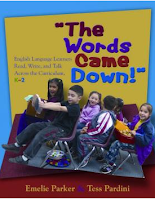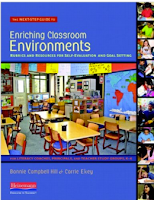Teaching and Learning Through Inquiry - Got the right tool?
Dear Friends,
A previously written post, just waiting to be published...
สวัสดีปีใหม่,
I write from Thailand as the Thai New Year draws close! I love the festival that goes along with the Thai New Year. Songkran สงกรานต์ - Many only know of it as the 'Water Festival'. However, there is a deeper symbolic meaning to all that water throwing - a beautiful gesture of cleansing away evil deeds and bad luck.
New Year always brings a time of reflection. For many of us in education, we reflect on our teaching practices and think about what we can do even better in the new year. How can we re-arrange our classrooms for better learning? Could we add a time for a passion project? Along with this line of thinking, married with the Thai traditions, I have reflected on classroom practices as a way to inspire meaningful insights into our teaching practices. What have been my 'evil deeds' in the classroom? What 'bad luck' would I like to wash away?
Most importantly, what would I want to tell teachers new to teaching?
The answer has to do with Play!
At the beginning of my teaching career, I focused on student engagement and measured it terms of how much fun my students were having. I spent hours considering the question, "How could I make learning seem like fun and more like play?"
Later, bad luck hit, and 'play' and 'fun' became bad words for the classroom. Parent requests to a principal at one school said, "We want the serious teacher, not the fun teacher." Reduced program funding severely undercut recess, PE and all things seeming 'non-academic' due to a perceived lack of importance.
Three books that I have been reading have influenced this year's reflection:


While reading three seemingly very different books, one about classroom environments, one about teaching ESL students, and another about how to do what you love and get paid for it...I was most surprised by the common theme of play. The Words Came Down! By Parker and Parlini, recognises the value in play when teaching children to learn in English when it is not their native language. Screw Work Let's Play by John Williams - introduced me to a new theory that presumes that we are at a unique juncture in history where we can choose what we do, based on our passions. In essence, we can choose to do what we love so that work feels more like play. Therefore, we no longer need to create a workforce, but we can forge into the world of a new "play force".
This idea has me really excited. We know that the way we teach and learn needs an upgrade. How many times have you heard the adage: "Our Schools were built for the industrial revolution." While politicians seem to argue about the money given to education, creatives are trying their best to either dig into their own pockets (@BillGates, Mark Zuckerberg) or trying to re-invent schooling themselves, like AltSchool.
We know things need to change. I have been thinking about every day, ever since I started teaching. Everything done in my classroom, is to try to heed this call for change. I want to innovate... create... a new system for education!
But a change in the culture of schooling isn't easy. However, could it be, like Occam's Razor, that 'Among competing hypotheses, the one with the fewest assumptions should be selected, or the simplest answer is the usually the correct one?'
Could seeing play in a new way, be the answer? Could we make schools more like life, but also more playful and fun? But wait, Kate... you say- No way! What about our deeply held beliefs that school has to be work, it has to be HARD to be of any esteem?
Such sentiments as Teddy's Roosevelt's quote shares:
“Nothing in the world is worth having or worth doing unless it means effort, pain, difficulty… I have never in my life envied a human being who led an easy life. I have envied a great many people who led difficult lives and led them well.”
Well into a life of putting my passions into education and the improvement of schooling of young children, I believe that learning is playful and is fun - inherently! It is when we are not learning that school and learning are not fun. How many of us went to that kind of school - not fun because we weren't learning anything we didn't already know?
Furthermore, I believe that play is learning. Think about it. Consider... Is it possible to play and notlearn? As John Holt's classic Learning All The Time discusses, children learn through their experiences to make sense of the world, and those experiences and learning are not confined to a classroom.
To me, there is no longer such a distinct line between play and learning or academics and play. We don't have to have one or the other. We can have both! (Which will have to be a topic for another blog! Ask me about GRASPS, as a way to combine academics, assessment, play and fun.)
So, if you took this time to read this, comment below:
What do you think?
 Click here for the original post
Click here for the original postViews: 19
Add a Comment
© 2025 Created by Elaine Reimann.
Powered by
![]()

You need to be a member of Inquiry Teaching and Learning to add comments!
Join Inquiry Teaching and Learning